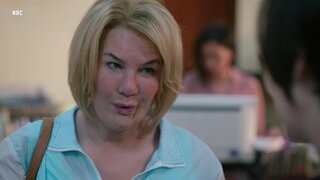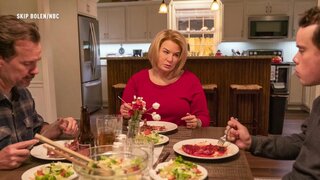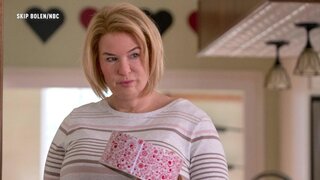Create a free profile to get unlimited access to exclusive videos, breaking news, sweepstakes, and more!
How NBC’s ‘The Thing About Pam’ Goes Beyond True Crime Tropes
Executive producer Jenny Klein discusses the limited six-part series that tells the complicated story of Pamela Hupp, who is accused of murdering her friend Betsy Faria.
In many ways, the story at the heart of NBC’s limited series “The Thing About Pam” is a classic true crime drama. But that doesn’t mean the show isn’t aiming to upend some of the genre’s typical tropes.
Showrunner and executive producer Jenny Klein spoke with Oxygen.com about the shocking, true story of Pamela Hupp, the Missouri woman accused of murdering her close friend Elizabeth “Betsy” Faria in 2011. Russ Faria, Betsy’s husband was initially tried and convicted for her death before being exonerated in 2015; Hupp, already in prison for a separate murder linked to the case, was officially charged with Betsy’s murder in 2021 and has pleaded not guilty.
Klein explains the series – starring two-time Academy Award winner Renée Zellweger – isn’t anchored by the darkness one might usually find in the true crime sphere. Instead brings an air of absurdity stemming from the “ridiculous experiences” surrounding Hupp’s behavior.
“Certainly, we wanted to tell an enthralling story that captures the world of this show,” Klein told Oxygen.com’s Stephanie Gomulka. “How unbelievable this wrongful prosecution of Russ Faria was. So the tone was definitely one of our biggest challenges, but wound up being something really unique to the show.”
Klein said it wasn’t just Hupp’s character, but the bizarre trial leading to Russ Faria’s wrongful conviction that made the story stand out, and “honoring the natural absurdities of this story brought in these strands of levity that wind in with the drama.”
Audiences already familiar with the Hupp case know the tale comes with its fair share of surprises, much of which is on display in the series through the lens of the soda-toting and ever-so unreliable title character. But it's the very oddities offered up by Hupp (like scene where she burns cash while trying to iron bills on an ironing board) that create a world unique from the myriad of yellow-taped crime shows.
“Some crime dramas have a way of, by their very nature, being so terribly sad that you’re really moored in that emotion throughout,” Klein continued. “But because of the absurd nature of this story and the fact that I’ve never seen a character like Pam on TV, it creates this sort of constant sense of ‘Oh, my God, did this really happen?’ and humor to it because truth really was stranger than fiction in this case.”
Klein said trying to keep up with the protagonist’s alleged lies alone generated its own experience. She referred to the writers’ use of “Pam Vision,” a visual device that shows the juxtaposition between Hupp’s version of events versus what happened in real life.
“Just being with Pam, in a way, is this relentless force that is definitely unique to our crime story,” she said. “Because you just won't believe what she’s going to do next, and that creates a series of twists and turns.”
Klein said the show tries to take advantage of Hupp’s skewed perspective in telling the story.
“We wanted being with Pam to be a visceral experience for the viewer,” said Klein. “Where you’re getting in close with her. Where you’re seeing what makes Pam tick.”
Based on the podcast of the same name, the six-part series brings another unique aspect to the story that some true crime fans might already be familiar with: a narration by Keith Morrison himself, the host of Dateline NBC.
“It was a dream; I’m such a fan of Dateline, and Keith is such an iconic voice,” said Klein on working with the news correspondent who covered the case. “Writing this voiceover for our show, we wanted to tilt it a bit from the way it's presented straightforward on Dateline, where he’s more of a philosophical, omniscient narrator, where it lends a bit of a meta aspect to our storytelling.”
Klein said writing Morrison’s scripted narrative was one of the highlights of working on the series, adding, “he has a voice you just can’t stop listening to.”
Despite the less-than-gloomy approach to the story, Klein hopes “The Thing About Pam” will help raise awareness on the gravity of wrongful prosecutions, as was the case in the trial of Russ Faria.
“This was sort of a horror story of confirmation bias,” said Klein, referring to the psychology of wanting to interpret events in way to fit an individual’s personal beliefs. “It’s about the presumptions that we make and how all of this became the perfect storm for Russ Faria’s worse nightmare. And the scariest thing is that it can happen to anyone.”
“The Thing About Pam” airs Tuesdays on NBC at 10/9 c.
“The Thing About Pam” is produced by NBC News studios, Blumhouse Television, and Big Picture Co. Oxygen’s parent company is NBCUniversal.






























